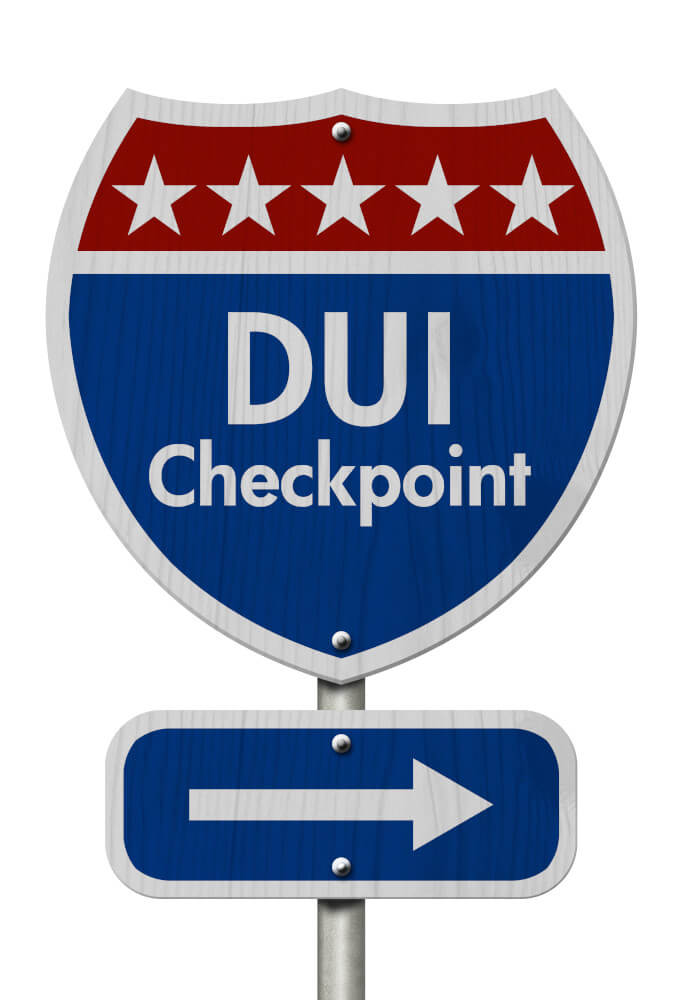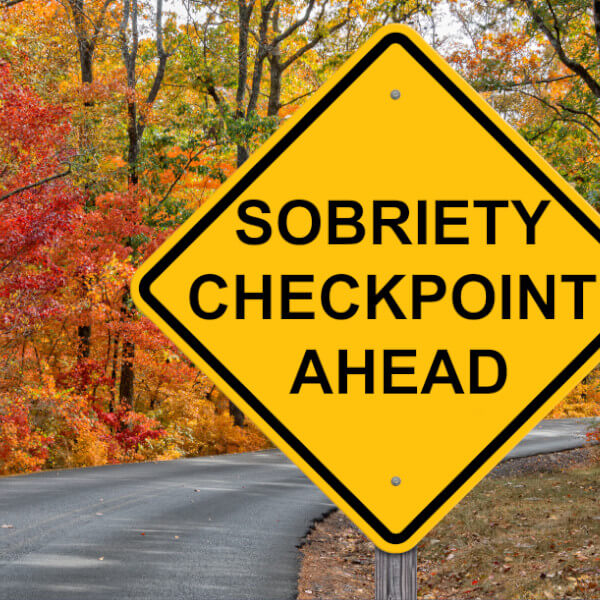DUI roadblocks in Tennessee are a common law enforcement tool used to prevent impaired driving. These Tennessee DUI checkpoints involve police officers stopping vehicles at predetermined locations to check drivers for signs of intoxication. While effective in reducing DUI-related incidents, they raise questions about their legality and the rights of drivers who are stopped. Here, we will explore the legality of DUI checkpoints in Tennessee, their prevalence, and the defense strategies available to those facing DUI charges as a result of such stops.
Are DUI Checkpoints in Tennessee Legal?
DUI checkpoints in Tennessee are legal under both federal and state law, but they must adhere to specific guidelines to be considered constitutional. The U.S. Supreme Court’s decision in Michigan Dept. of State Police v. Sitz (1990) established that sobriety checkpoints do not violate the Fourth Amendment’s prohibition against unreasonable searches and seizures, provided they meet certain criteria. These criteria include the necessity of balancing the state’s interest in preventing drunk driving against the individual’s Fourth Amendment rights.
Tennessee DUI checkpoints must comply with the following requirements:
- Public Safety Objective: The primary purpose of the checkpoint must be to ensure public safety by preventing DUI incidents. The checkpoint cannot be used as a pretext for general law enforcement purposes, such as drug searches.
- Supervisory Approval: The decision to establish a DUI checkpoint must be made by a supervisory officer rather than by officers in the field. This ensures that the checkpoint is implemented as part of a broader public safety strategy rather than at the discretion of individual officers.
- Pre-Determined Guidelines: The checkpoint must operate according to specific, pre-determined guidelines. These guidelines typically include the location, time, duration, and procedure for stopping vehicles. Random stops are not allowed; officers must follow a consistent pattern, such as stopping every third or fifth vehicle.
- Adequate Warning: Drivers must receive adequate warning of the checkpoint ahead. This is typically accomplished through visible signage, flashing lights, and the presence of uniformed officers. The warning serves to inform drivers of the checkpoint’s purpose and location, reducing the potential for sudden stops or accidents.
- Minimal Inconvenience: The checkpoint should be designed to minimize inconvenience to drivers. Stops should be brief, and officers should only detain drivers long enough to determine if further investigation is warranted. Prolonged stops or extensive questioning without probable cause can render the checkpoint unconstitutional.

Challenging the Legality of a Tennessee DUI Checkpoint

While DUI checkpoints in Tennessee are legal, their legality can be challenged in court if the checkpoint fails to meet the established criteria. A successful challenge of charges from DUI roadblocks in Tennessee could result in the suppression of evidence obtained during the stop, which could significantly weaken the prosecution’s case. Common grounds for challenging the legality of a Tennessee DUI roadblock include:
- Lack of Supervisory Approval: If the decision to establish the checkpoint was made by field officers rather than a supervisory officer, the checkpoint may be deemed unconstitutional.
- Deviation from Pre-Determined Guidelines: If officers deviated from the established guidelines, such as by stopping vehicles randomly or without following a consistent pattern, the checkpoint may be invalidated.
- Insufficient Warning: If the checkpoint was not adequately marked or failed to provide sufficient warning to drivers, it could be considered unlawful.
- Prolonged Detention: If drivers were detained for an unreasonable amount of time without probable cause, the stop may be ruled unconstitutional.
Call Now For Help Beating A Charge from a DUI Roadblock in Tennessee
Call 1-888-839-4384 today to get connected with one of the top-rated DUI lawyers in Tennessee near you! Drunk Driving Defense has some of the most successful and highest-rated Tennessee DUI lawyers on our roster.
Prevalence of DUI Roadblocks in Tennessee
DUI checkpoints are a common occurrence in Tennessee, particularly during holidays, weekends, and other times when impaired driving incidents are more likely to occur. Law enforcement agencies across the state, including the Tennessee Highway Patrol (THP) and local police departments, regularly conduct sobriety checkpoints as part of their efforts to combat drunk driving.
The locations of DUI roadblocks in Tennessee are typically selected based on data indicating areas with a high incidence of DUI-related accidents or arrests. Common locations for Tennessee DUI roadblocks include:
- Highways and Major Roads: DUI checkpoints in Tennessee are often set up on highways and major roads that see high volumes of traffic. These locations are chosen to maximize the deterrent effect of the checkpoint and to identify as many impaired drivers as possible.
- Near Bars and Entertainment Districts: Tennessee DUI checkpoints are frequently located near areas with a high concentration of bars, restaurants, and entertainment venues, where impaired driving is more likely to occur.
- Holiday and Event Periods: Checkpoints for DUI in Tennessee are especially prevalent during holidays and special events, such as New Year’s Eve, the Fourth of July, and football games. These periods often see an increase in alcohol consumption, leading to a higher risk of DUI incidents.



Notification of DUI Checkpoints in Tennessee
Tennessee law enforcement agencies are generally required to provide advance notice of DUI checkpoints in Tennessee, although the exact location and time may not always be disclosed. Notifications are often made through press releases, social media, and local news outlets. The purpose of this notice is to enhance the deterrent effect of the checkpoint by discouraging drivers from getting behind the wheel while impaired.
Despite this requirement, the advance notice does not diminish the effectiveness of the checkpoint, as it serves both as a preventive measure and as a means of ensuring compliance with legal standards.
Beating A Charge from A DUI Checkpoint in Tennessee
If you are charged with DUI following a stop at a Tennessee sobriety checkpoint, several DUI defense strategies may be available to challenge the charges. These strategies can be complex and often require the expertise of an experienced DUI attorney in Tennessee. Below are some common defense approaches:
1. Challenge the Legality of the Checkpoint
As previously mentioned, the legality of a DUI checkpoint in Tennessee itself can be challenged if it does not comply with the established legal requirements. If the checkpoint is found to be unconstitutional, any evidence obtained during the stop, including breathalyzer results or officer observations, may be suppressed. This could lead to a dismissal of the charges or a reduction in the severity of the charges.
2. Question the Officer’s Observations
A Tennessee DUI charge often hinges on the arresting officer’s observations, such as slurred speech, the smell of alcohol, or unsteady balance. These observations are subjective and can be challenged in court. For example:
- Medical Conditions: Certain medical conditions, such as diabetes or neurological disorders, can mimic the signs of intoxication. An attorney may argue that these conditions were mistaken for impairment.
- Environmental Factors: External factors, such as uneven pavement, poor lighting, or cold weather, can affect a driver’s performance during field sobriety tests. These factors can be used to challenge the validity of the officer’s observations.
3. Challenge Field Sobriety Tests
Field sobriety tests (FSTs) are commonly used at DUI checkpoints to assess a driver’s level of impairment. However, these tests are not always reliable indicators of intoxication. Defense strategies related to FSTs may include:
- Improper Administration: If the officer did not follow standardized procedures when administering the FSTs, the results may be deemed unreliable. For example, the tests must be conducted on a flat, well-lit surface, and the driver must be given clear instructions.
- Physical or Medical Conditions: An attorney may argue that the driver’s inability to perform the FSTs was due to physical or medical conditions unrelated to alcohol consumption.
4. Challenge Breathalyzer or Blood Test Results



Breathalyzer and DUI blood tests are often used to measure a driver’s blood alcohol concentration (BAC). However, these tests are not infallible and can be challenged on several grounds:
- Calibration and Maintenance Issues: Breathalyzer devices must be regularly calibrated and maintained to ensure accuracy. If the device used at a Tennessee DUI roadblock in your case was not properly maintained, the results may be invalid.
- Improper Procedure: The officer must follow specific procedures when administering a breathalyzer or blood test at a DUI roadblock in Tennessee. Any deviation from these procedures, such as failing to observe the driver for a specified period before the test, can result in inaccurate readings.
- Contamination or Sample Handling: Blood test results at DUI roadblocks in Tennessee can be challenged if there is evidence that the sample was contaminated or improperly handled, leading to inaccurate BAC readings.
5. Lack of Probable Cause for Arrest
Even if the DUI checkpoint in Tennesee itself was legal, the officer must have had probable cause to arrest you for DUI. Probable cause is based on the totality of the circumstances, including the officer’s observations, test results, and any admissions made by the driver. If the officer lacked sufficient evidence to establish probable cause, the arrest may be challenged, and the charges could be dismissed.
6. Procedural Violations
DUI cases are subject to strict procedural requirements, from the initial stop at a Tennessee DUI checkpoint to the booking process. Any violation of these procedures can be grounds for challenging the DUI charges. For example:
- Failure to Read Miranda Rights: If the officer failed to read your Miranda rights before questioning you, any statements you made may be inadmissible in court.
- Improper Booking Procedures: Errors in the booking process, such as incorrect documentation or mishandling of evidence, can also be used to challenge the DUI charges.
Find A DUI Lawyer To Beat A Charge From DUI Checkpoints in Tennessee
DUI checkpoints in Tennessee are a widely used tool in the fight against impaired driving, but they must be conducted within the bounds of the law. Understanding the legal framework governing these checkpoints, their prevalence, and the DUI defense strategies available can be crucial for anyone facing DUI charges as a result of a Tennessee DUI checkpoint stop.
If you find yourself in this situation, consulting with an experienced DUI attorney in Tennessee is essential. An attorney can help you navigate the complexities of Tennessee DUI law, challenge the legality of the checkpoint or the evidence against you, and work toward the best possible outcome for your case.



More Resources About DUI Roadblocks in Tennessee
To learn more about DUI roadblocks in Tennessee, read some of our informative articles below. We explore many different aspects of DUI checkpoints in Tennessee and how a Tennessee DUI lawyer can help you beat a DUI charge. Also, you can call 1-888-839-4384 anytime to schedule a free consultation.

